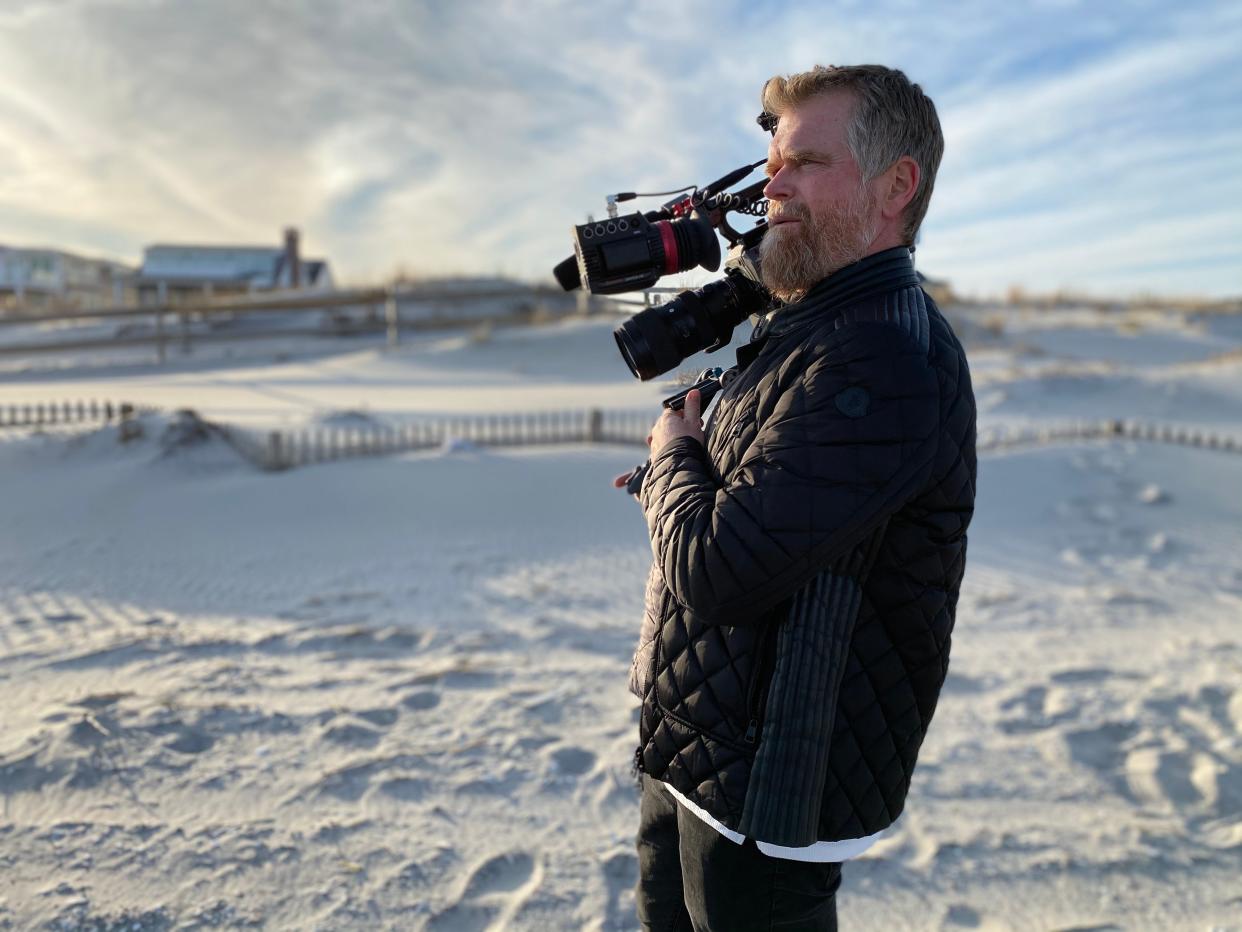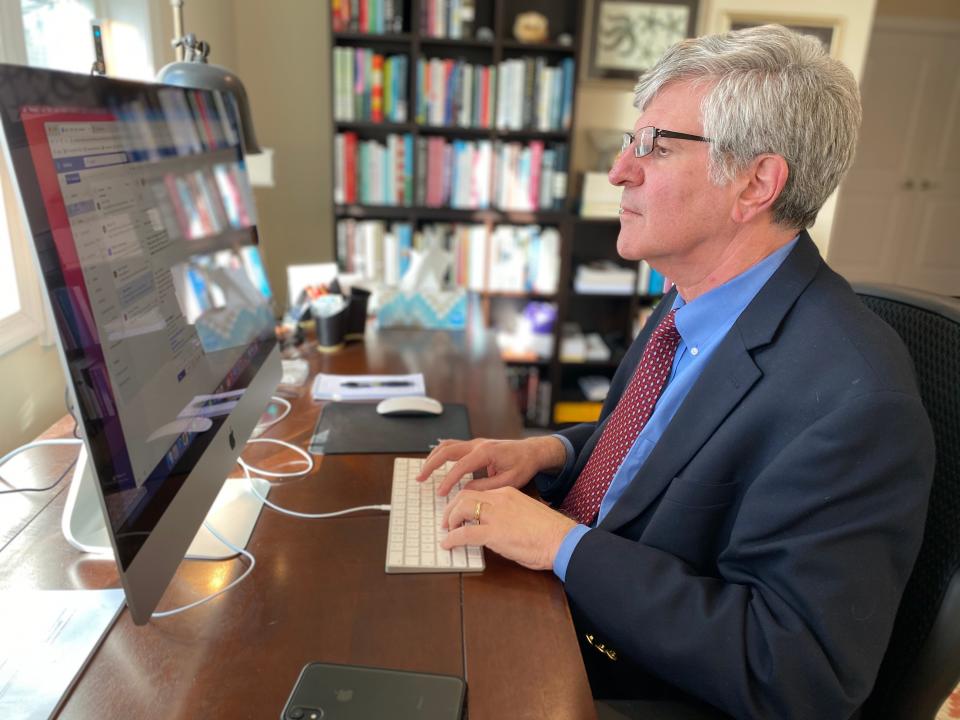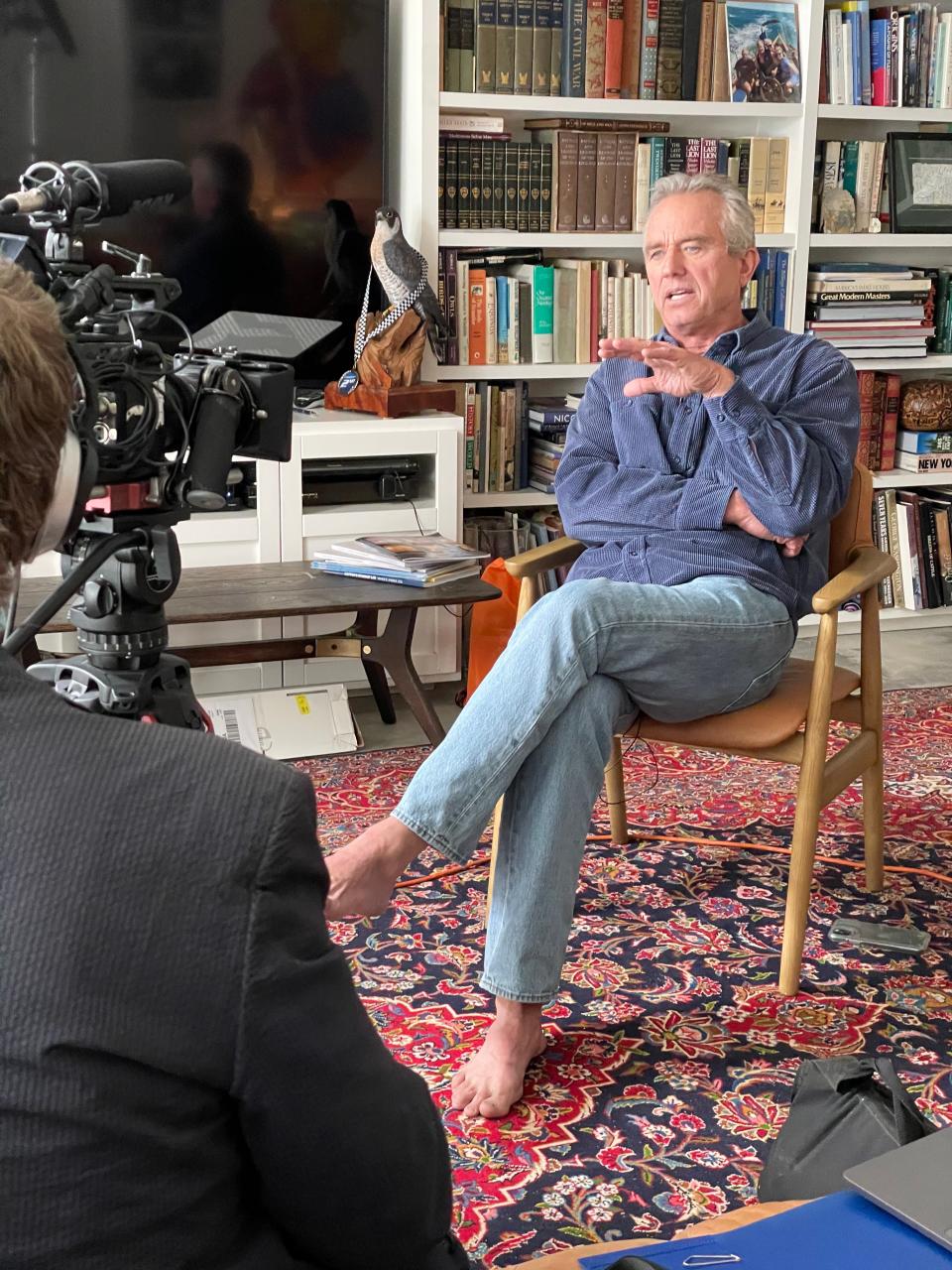'Shot in the Arm,' documentary on vaccine hesitancy, to premiere at Palm Springs film fest

- Oops!Something went wrong.Please try again later.
Before anyone heard about COVID-19 or knew the global devastation it would cause, Academy Award nominated documentary filmmaker Scott Hamilton Kennedy was looking at another viral outbreak.
From Jan. 1 to Dec. 31, 2019, 1,274 measles cases were confirmed in 31 states in the United States, the greatest number of reported cases in the country since 1992, according to the Centers for Disease Control and Prevention. Globally, measles cases reached nearly 1 million and killed an estimated 207,500 people in 2019.
Although measles was declared eliminated in the United States in 2000, record-breaking numbers were occurring. Why? According to the CDC, the U.S. measles outbreaks were all linked to travel-related cases that reached at-risk populations, including those who are unvaccinated or under-vaccinated against measles.
The first measles vaccine was licensed for public use in 1963. Today, two doses of the measles, mumps and rubella (MMR) vaccine is recommended for children to protect against the viruses. Between 2000 and 2020, measles vaccination prevented an estimated 31.7 million deaths worldwide, according to the World Health Organization.
Over the years, however, anti-vaccination activists have grown. Much of it dates back to 1998, when a fraudulent research paper was published, asserting a link between the MMR vaccine and autism without robust scientific evidence. Although there have been numerous studies since then refuting the posited link between MMR vaccination and autism, vaccination rates dropped, with many still concerned about the risk of autism after vaccination.
"I was like, this is being fomented by under-vaccination, not by some powerful new measles strain," Kennedy said. "Those people not getting vaccinated are being influenced by very powerful and very nefarious and clever anti-vaxxers."
The filmmaker then decided to do what he knows best: grab a camera and capture the truth. His new documentary, "Shot in the Arm," will have its world premiere Jan. 6 at the Palm Springs International Film Festival. Other screenings will take place Jan. 7 and 9. Kennedy will be in attendance for the premiere, along with executive producer and astrophysicist Neil deGrasse Tyson.
The premiere marks a return to the desert for Kennedy, whose first film, "OT: Our Town," won the Audience Award at the 2003 festival, and who had a short film play at the Palm Springs International ShortFest. The director said it's "an honor to be back" to the festival, and he "can't wait to see how the Palm Springs audience responds to 'Shot in the Arm.'" With Tyson joining him, "it's not going to be a boring Q&A, I promise you that."
Kennedy has covered a number of topics in his previous films, but "didn't know science needed to be defended" until he started doing research for his documentary "Food Evolution," focused on the conversation around genetically modified foods and anti-GMO/pro-organic confusion around the subject, he explained. During filming, he was able to connect with many individuals in the science industry, including John Swartzberg, a clinical professor emeritus at University of California Berkeley’s School of Public Health, who suggested the director should tackle anti-vaccine sentiments in his next film.
"In my brilliance, I said, 'Oh no, those guys are going to go away, they're going to burn out. How could they survive?'" he said. "Cut to spring 2019, and I'm faced with this record-breaking measles outbreak, state of emergency in New York, state of emergency in Washington state, measles outbreaks all over Europe."

Kennedy began to film at the CDC with leading experts in the health and science fields, including former chief medical advisor to the president Dr. Anthony Fauci, Director of the Vaccine Education Center Dr. Paul Offit, Director of Voices for Vaccine Karen Ernst and Dean of the National School of Tropical Medicine Dr. Peter Hotez. He also followed Blima Marcus, an ultra-Orthodox nurse practitioner from New York City, who at one point was distrustful of vaccines herself. She was recommended the book "Vaccine Epidemic" when she was a new mother, and it led her to believe that vaccinating her daughter would injure her. As a result, she decided to delay the rest of her daughter's immunizations.
"These are all myths, but at the time I didn't know that," Marcus said in the documentary.
She then spent five years in a doctorate program for her nursing degree where she was able to analyze research studies and see what true science was all about. When she revisited vaccines, she said she had a completely different outlook. During the measles outbreak, she took it upon herself to hold information sessions with people in the Orthodox community and answer questions they have about vaccines. But anti-vaccine advocates, also holding events in community centers, made it even harder to get the truth to people.
The director wanted to give those who are opponents of vaccines a voice in the documentary as well. Featured throughout the film are interviews with parents who allege vaccines caused health problems for their children, as well as well-known anti-vaccine activists like media personality and Informed Consent Action Network CEO Del Bigtree and founder and chairman of Children's Health Defense Robert F. Kennedy Jr.
"I don't want the pro-science side to just say these are the antis and this is who they are," the Oscar nominee said. "I want the antis to represent themselves as best they can and with their own words, and to be honest, because I find the evidence is clear that many of them are manipulators and downright liars, to 'hang themselves by their own petard.'"

Kennedy thought he had a solid film in 2019, but when the COVID-19 pandemic emerged in 2020, he thought there would be no future for the documentary. He even believed that those who were against vaccines would change their tune with a once-in-a-century pandemic. Once again, he was proven wrong.
He pivoted to filming his family during lockdown, which included showing his wife, a teacher, and children navigate distance learning at home and the emotional ups and downs of sheltering in place. Kennedy also kept up with protestors and health care workers trying to combat the deadly virus.
Looking back on the project and living through such uncertain times, Kennedy said he has never been so emotionally engaged in a film before. But "Shot in the Arm" also reminded him about the power of the social contract, a philosophical concept that states people agree to live peacefully, respect each other's rights and obey laws for the benefit of all.
"Underneath it all, did I make a movie to promote vaccines? No. Did I make a movie to defend science? Yes. But more importantly it's the zeitgeist ... that I had a feeling about in 2019 but it wasn't until COVID that we really saw that the film is about the social contract," Kennedy said. "It's about defending democracy and truth and decency and that's what really inspired me to make the film, complete the film, and I've seen the response to the film in early sneak preview screenings as a healing film for the enormous public health community to say it was worth it."
Ema Sasic covers entertainment and health in the Coachella Valley. Reach her at ema.sasic@desertsun.com or on Twitter @ema_sasic.
This article originally appeared on Palm Springs Desert Sun: 'Shot in the Arm,' doc on vaccine hesitancy, to premiere in Palm Springs

